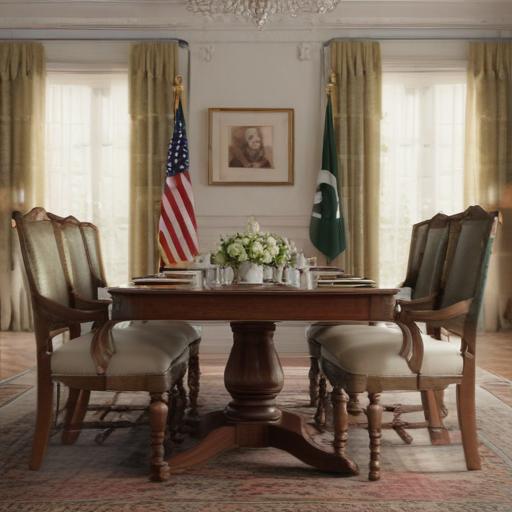Donald Trump recently welcomed Pakistan’s army chief, General Asim Munir, for a historic lunch at the White House, marking a significant moment in U.S.-Pakistan relations. This meeting, the first of its kind where a U.S. president has hosted a Pakistani military leader who is not also the head of state, comes as both countries appear to be recalibrating their ties, which had seen considerable tension in prior years.
In his opening address to Congress, Trump credited Pakistan for apprehending a suspect tied to the deadly Abbey Gate bombing at Kabul airport in 2021 and praised the Pakistani government. This acknowledgment of cooperation represents a noteworthy shift from Trump’s prior denouncements of Pakistan in 2016, where he accused the nation of deceit and harboring terrorists.
The backdrop to this meeting involves heightened geopolitical tensions, particularly marked by frenetic events in the Middle East, including military strikes from Israel against Iranian targets, resulting in increased unrest. Trump’s dialogue with Munir emphasized Pakistan’s influence in the region and acknowledged its role in mediating recent confrontations between India and Pakistan, including a brief but intense conflict in May that brought both nuclear powers to the brink of war.
Experts view this renewed engagement as reflecting Trump’s personal foreign policy style, which is characterized by spontaneous shifts rather than a consistent institutional approach. While some analysts suggest that the meeting is a strategic necessity amid rising global turbulence, others caution that the relationship relies heavily on the personalities involved rather than more formalized structures.
The U.S.-Pakistan history is rich and complex, with both nations historically cooperating on military and strategic levels. However, this relationship has often faced significant challenges and skepticism, especially after the 9/11 attacks. Observers note that for Pakistan, this meeting represents an opportunity to reassert its strategic importance and engage with the U.S. on pressing issues, such as trade and counter-terrorism.
Reflecting on these changes, many commentators speculate on the sustainability of this re-engagement, deeming it essential for both regions amidst global shifts. However, as recent history suggests, such alignments could easily change depending on the changing circumstances and leadership within both countries.
Overall, this meeting opens the door for a potentially transformative dialogue and collaboration between the U.S. and Pakistan, centering on shared interests and regional stability. Building on this dynamic could lead to more substantial partnerships and influence not just in bilateral ties, but also across broader international arenas.
